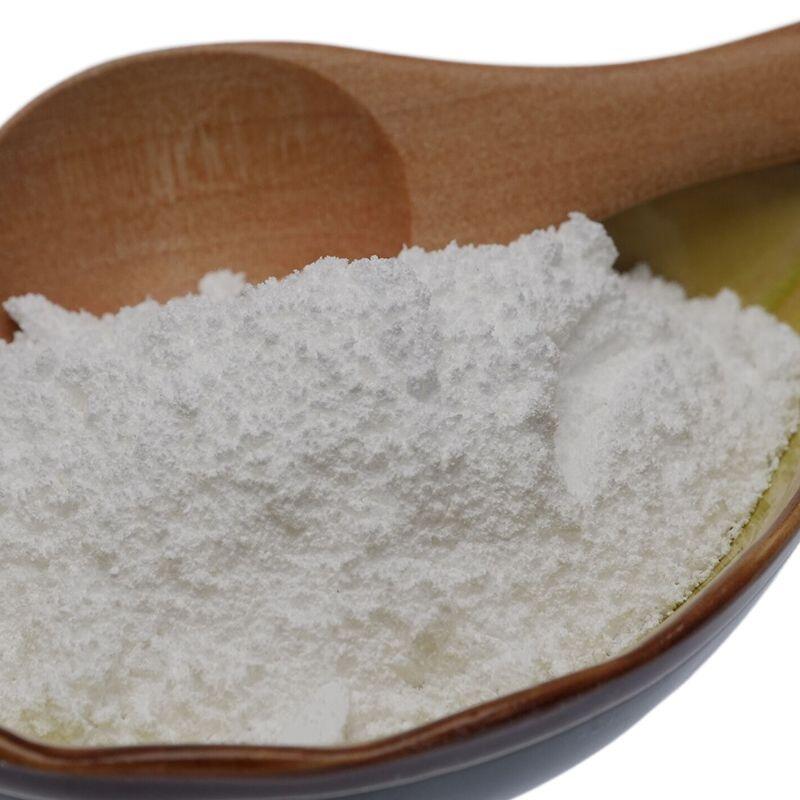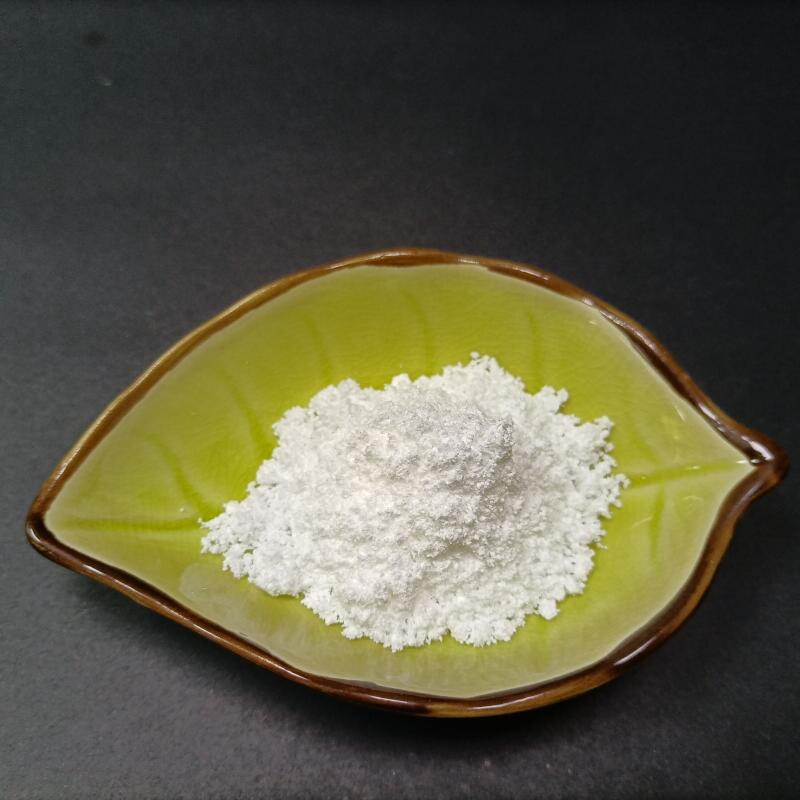-
Categories
-
Pharmaceutical Intermediates
-
Active Pharmaceutical Ingredients
-
Food Additives
- Industrial Coatings
- Agrochemicals
- Dyes and Pigments
- Surfactant
- Flavors and Fragrances
- Chemical Reagents
- Catalyst and Auxiliary
- Natural Products
- Inorganic Chemistry
-
Organic Chemistry
-
Biochemical Engineering
- Analytical Chemistry
-
Cosmetic Ingredient
- Water Treatment Chemical
-
Pharmaceutical Intermediates
Promotion
ECHEMI Mall
Wholesale
Weekly Price
Exhibition
News
-
Trade Service
▎The editor of WuXi AppTec's content team reviews the health status of patients diagnosed in the early stage of the epidemic, which helps us to better understand the long-term impact of the new coronavirus.
Previously, long-term tracking data of discharged patients from Jinyintan Hospital showed that more than 70% of patients still had symptoms after six months of discharge; the Sixth Affiliated Hospital of Sun Yat-sen University led a research report that nearly half of patients with COVID-19 had gastrointestinal sequelae three months after they were discharged from the hospital; An analysis of more than 230,000 patients with new crowns in the United States shows that the brain health of one-third of the infected people is affected; a Swedish study suggests that even with mild illness, 10% of patients still have long-term symptoms after 8 months.
.
.
Recently, "The Lancet" -Respiratory Medicine" The latest publication of Wuhan Central Hospital affiliated to Tongji Medical College of Huazhong University of Science and Technology, Wuhan University People’s Hospital, and scholars from the University of Southampton in the United Kingdom, researched and tracked the rehabilitation of hospitalized patients with severe COVID-19 in Wuhan in the following year The process showed that although most discharged patients can recover, one-third of patients still have lung effects a year later.
Dr.
Hu Yi, Director of the Department of Respiratory and Critical Care Medicine, Wuhan Central Hospital, Professor Nie Hanxiang, Deputy Director of the Department of Respiratory and Critical Care Medicine, Wuhan University People’s Hospital, Dr.
Mark G Jones, Southampton Biomedical Research Center, National Institute of Health (NIHR), Southampton Dr.
Wang Yihua from the University of Ampton is the corresponding author of the paper.
Screenshot source: The Lancet Respiratory Medicine This prospective longitudinal cohort study included a total of 83 patients hospitalized with severe new crowns in Wuhan University People's Hospital from February 1, 2020 to March 31, 2020.
The median age of these patients was 60 years old, no intubation was required during hospitalization, no history of hypertension, diabetes, cardiovascular disease, cancer, chronic lung disease, and no history of smoking at the time of admission.
The research team followed up the patients 3 months, 6 months, 9 months and 12 months after discharge.
Detailed interviews, physical examinations, routine blood tests, lung function tests, chest high-resolution CT examinations and 6 minutes Walk distance test, and evaluate the degree of dyspnea through the mMRC scale.
In 12 months, most patients' symptoms, exercise capacity, and lung CT changes related to new coronary infection have improved.
By 12 months, most patients appear to have fully recovered.
However, about 5% of patients still report dyspnea.
About one-third (33%) of patients with lung function indicators are still low, especially the diffusion of carbon monoxide (DLCO)-this indicator reflects the efficiency of oxygen transport from the lungs to the blood, which is more common in female patients .
▲Pulmonary function changes after discharge from the hospital in critically ill patients (picture source: reference [1]) In addition, in about a quarter (24%) of patients, CT scans show that there are still imaging abnormalities in the lungs, which is at the time of hospitalization It is more common in patients with more severe lung changes.
The research team pointed out that although this study only involved a small number of patients, and the relevant conclusions need to be further confirmed, these data show that some severely ill patients still have physiological and imaging changes 12 months after discharge, and long-term respiratory function is required for patients with new coronary disease.
Follow up and study whether exercise plans and treatment strategies help patients recover faster. New crown research related reading "The Lancet": Six months after Jinyintan's new crown patients were discharged, 76% still had symptoms.
Zhongshan Sixth Hospital led the study: 3 months after the new crown patients were discharged from the hospital, nearly half had gastrointestinal sequelae and 1/3 of the brains of patients with new crown infection Health is affected, the "Lancet" sub-Journal published data on 230,000 patients JAMA: "Awe" the new crown, even if it is mild, 10% of patients still have long-term symptoms after 8 months "This virus is unusual".
.
.
"Nature- "Medical" reviews the reference materials of the new coronavirus attack on nearly 10 organ systems other than the lung [1] Xiaojun Wu, et al.
, (2021).
3-month, 6-month, 9-month, and 12-month respiratory outcomes in patients following COVID-19-related hospitalisation: a prospective studys.
The Lancet Respiratory Medicine, DOI: https://doi.
org/10.
1016/S2213-2600(21)00174-0[2] One third of patients hospitalized with COVID- 19 have lung changes after a year.
Retrieved May 7, 2021, from Note: This article aims to introduce medical and health research progress, not a treatment plan recommend.
If you need guidance on treatment plans, please go to a regular hospital for treatment.
Previously, long-term tracking data of discharged patients from Jinyintan Hospital showed that more than 70% of patients still had symptoms after six months of discharge; the Sixth Affiliated Hospital of Sun Yat-sen University led a research report that nearly half of patients with COVID-19 had gastrointestinal sequelae three months after they were discharged from the hospital; An analysis of more than 230,000 patients with new crowns in the United States shows that the brain health of one-third of the infected people is affected; a Swedish study suggests that even with mild illness, 10% of patients still have long-term symptoms after 8 months.
.
.
Recently, "The Lancet" -Respiratory Medicine" The latest publication of Wuhan Central Hospital affiliated to Tongji Medical College of Huazhong University of Science and Technology, Wuhan University People’s Hospital, and scholars from the University of Southampton in the United Kingdom, researched and tracked the rehabilitation of hospitalized patients with severe COVID-19 in Wuhan in the following year The process showed that although most discharged patients can recover, one-third of patients still have lung effects a year later.
Dr.
Hu Yi, Director of the Department of Respiratory and Critical Care Medicine, Wuhan Central Hospital, Professor Nie Hanxiang, Deputy Director of the Department of Respiratory and Critical Care Medicine, Wuhan University People’s Hospital, Dr.
Mark G Jones, Southampton Biomedical Research Center, National Institute of Health (NIHR), Southampton Dr.
Wang Yihua from the University of Ampton is the corresponding author of the paper.
Screenshot source: The Lancet Respiratory Medicine This prospective longitudinal cohort study included a total of 83 patients hospitalized with severe new crowns in Wuhan University People's Hospital from February 1, 2020 to March 31, 2020.
The median age of these patients was 60 years old, no intubation was required during hospitalization, no history of hypertension, diabetes, cardiovascular disease, cancer, chronic lung disease, and no history of smoking at the time of admission.
The research team followed up the patients 3 months, 6 months, 9 months and 12 months after discharge.
Detailed interviews, physical examinations, routine blood tests, lung function tests, chest high-resolution CT examinations and 6 minutes Walk distance test, and evaluate the degree of dyspnea through the mMRC scale.
In 12 months, most patients' symptoms, exercise capacity, and lung CT changes related to new coronary infection have improved.
By 12 months, most patients appear to have fully recovered.
However, about 5% of patients still report dyspnea.
About one-third (33%) of patients with lung function indicators are still low, especially the diffusion of carbon monoxide (DLCO)-this indicator reflects the efficiency of oxygen transport from the lungs to the blood, which is more common in female patients .
▲Pulmonary function changes after discharge from the hospital in critically ill patients (picture source: reference [1]) In addition, in about a quarter (24%) of patients, CT scans show that there are still imaging abnormalities in the lungs, which is at the time of hospitalization It is more common in patients with more severe lung changes.
The research team pointed out that although this study only involved a small number of patients, and the relevant conclusions need to be further confirmed, these data show that some severely ill patients still have physiological and imaging changes 12 months after discharge, and long-term respiratory function is required for patients with new coronary disease.
Follow up and study whether exercise plans and treatment strategies help patients recover faster. New crown research related reading "The Lancet": Six months after Jinyintan's new crown patients were discharged, 76% still had symptoms.
Zhongshan Sixth Hospital led the study: 3 months after the new crown patients were discharged from the hospital, nearly half had gastrointestinal sequelae and 1/3 of the brains of patients with new crown infection Health is affected, the "Lancet" sub-Journal published data on 230,000 patients JAMA: "Awe" the new crown, even if it is mild, 10% of patients still have long-term symptoms after 8 months "This virus is unusual".
.
.
"Nature- "Medical" reviews the reference materials of the new coronavirus attack on nearly 10 organ systems other than the lung [1] Xiaojun Wu, et al.
, (2021).
3-month, 6-month, 9-month, and 12-month respiratory outcomes in patients following COVID-19-related hospitalisation: a prospective studys.
The Lancet Respiratory Medicine, DOI: https://doi.
org/10.
1016/S2213-2600(21)00174-0[2] One third of patients hospitalized with COVID- 19 have lung changes after a year.
Retrieved May 7, 2021, from Note: This article aims to introduce medical and health research progress, not a treatment plan recommend.
If you need guidance on treatment plans, please go to a regular hospital for treatment.







